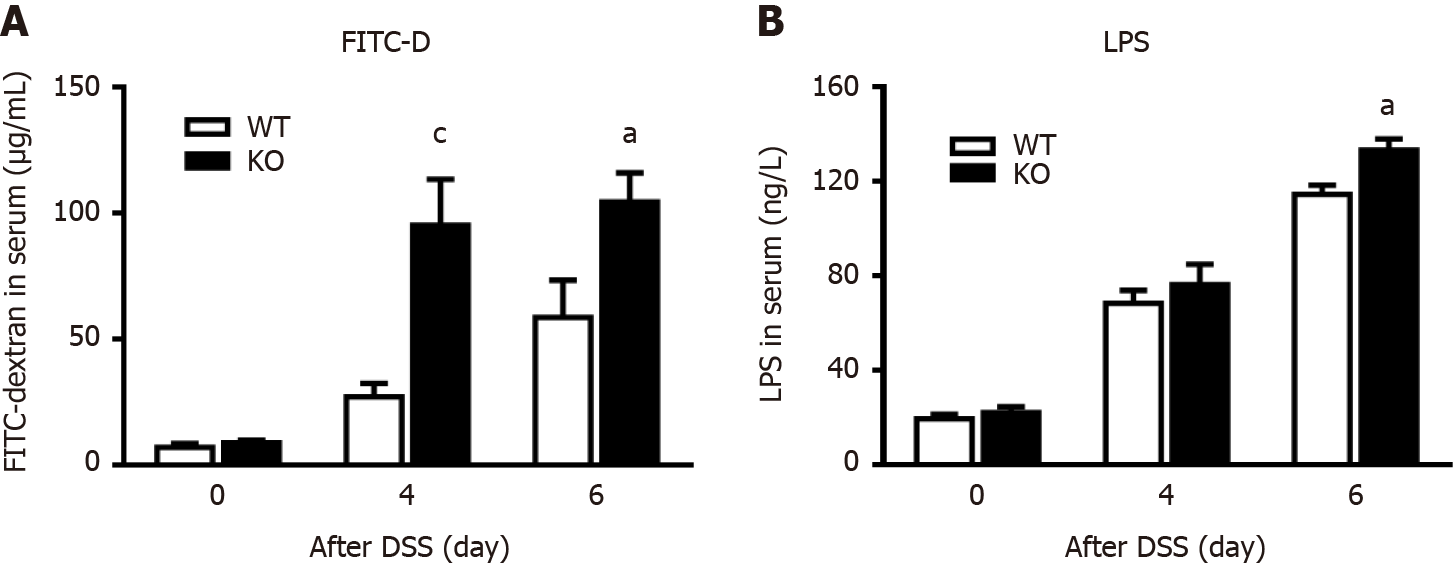Copyright
©The Author(s) 2024.
World J Gastroenterol. Mar 14, 2024; 30(10): 1405-1419
Published online Mar 14, 2024. doi: 10.3748/wjg.v30.i10.1405
Published online Mar 14, 2024. doi: 10.3748/wjg.v30.i10.1405
Figure 2 Alkaline sphingomyelinase deficiency increases intestinal permeability in dextran sulfate sodium-induced colitis.
The mice were treated with 3% dextran sulfate sodium (DSS) water, and blood was collected on days 0, 4, and 6. A: The mice were administered 4 kDa fluorescein isothiocyanate dextran (FITC-D) by gavage 4 h before blood sampling, after which the fluorescence intensity of FITC-D in serum was measured (n = 5-9 per group); B: Serum lipopolysaccharide (LPS) concentrations were detected on days 0, 4, and 6 after DSS treatment (n = 3 per group). aP < 0.05, cP < 0.005 compared with wild-type (WT) mice. KO: Gene knockout.
- Citation: Tian Y, Li X, Wang X, Pei ST, Pan HX, Cheng YQ, Li YC, Cao WT, Petersen JDD, Zhang P. Alkaline sphingomyelinase deficiency impairs intestinal mucosal barrier integrity and reduces antioxidant capacity in dextran sulfate sodium-induced colitis. World J Gastroenterol 2024; 30(10): 1405-1419
- URL: https://www.wjgnet.com/1007-9327/full/v30/i10/1405.htm
- DOI: https://dx.doi.org/10.3748/wjg.v30.i10.1405









